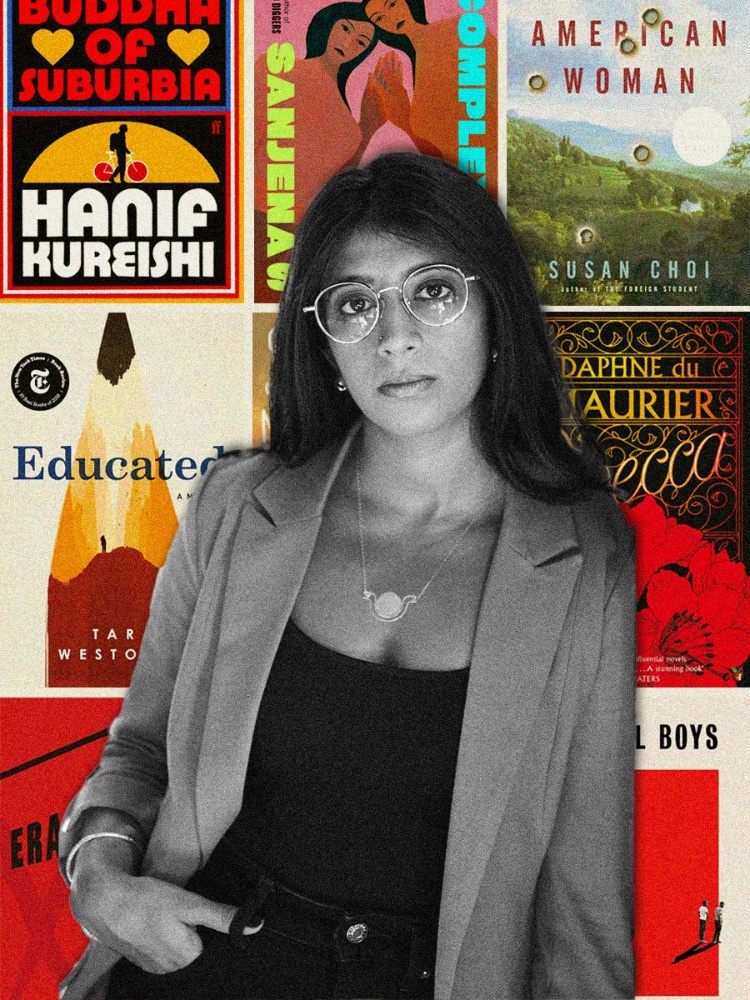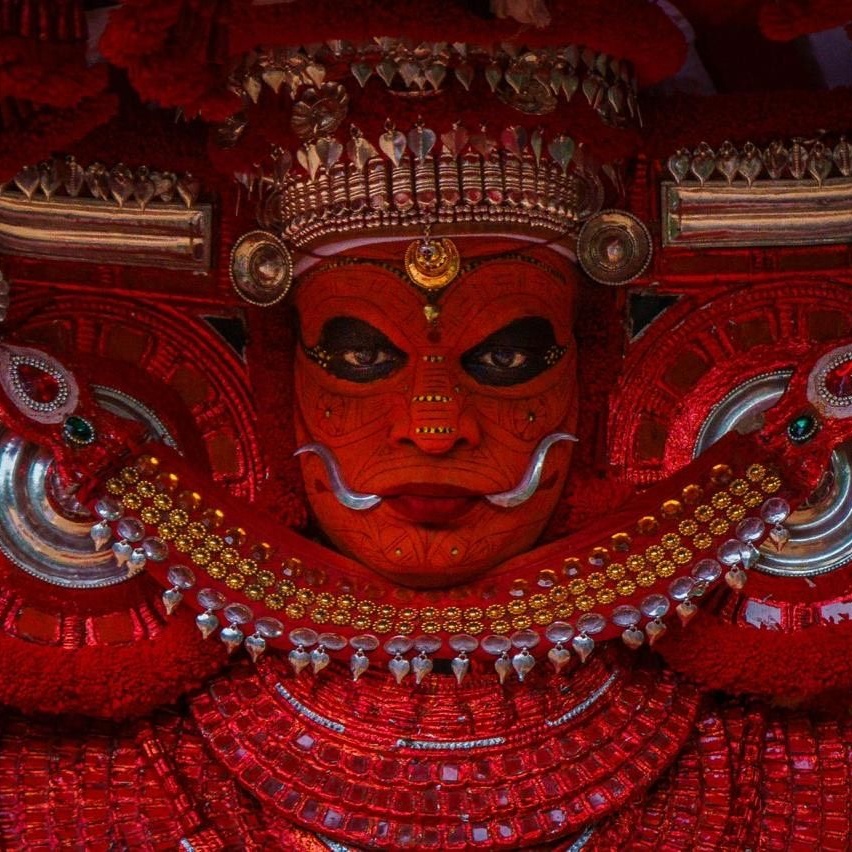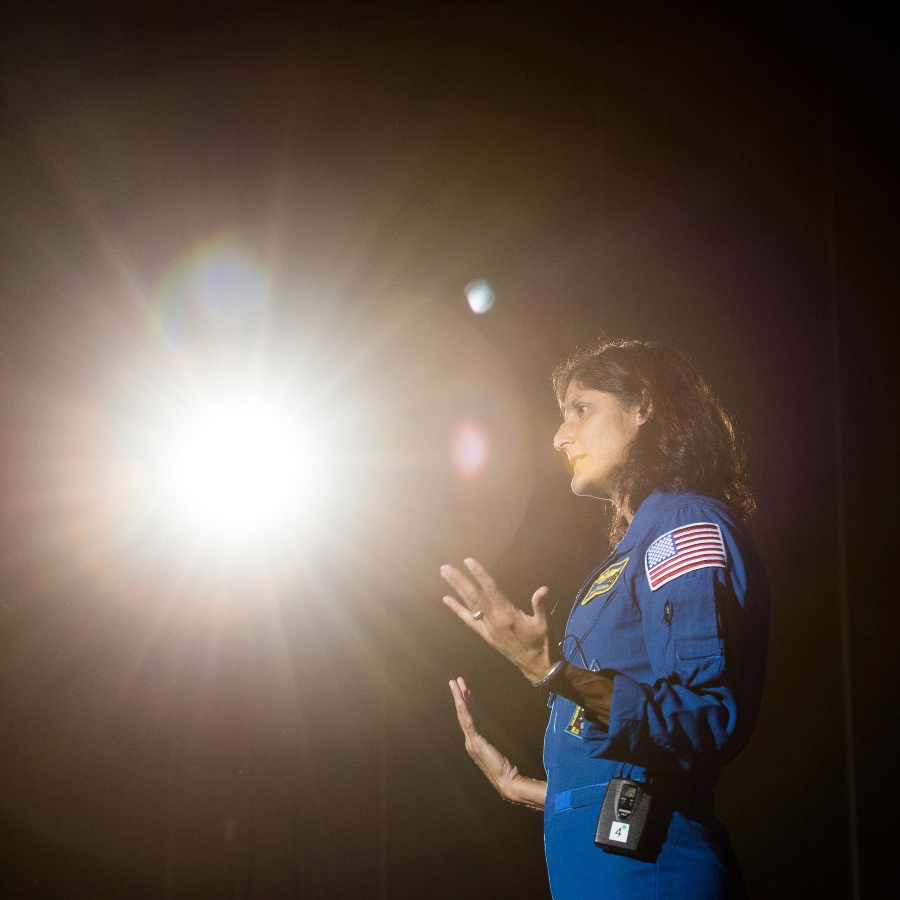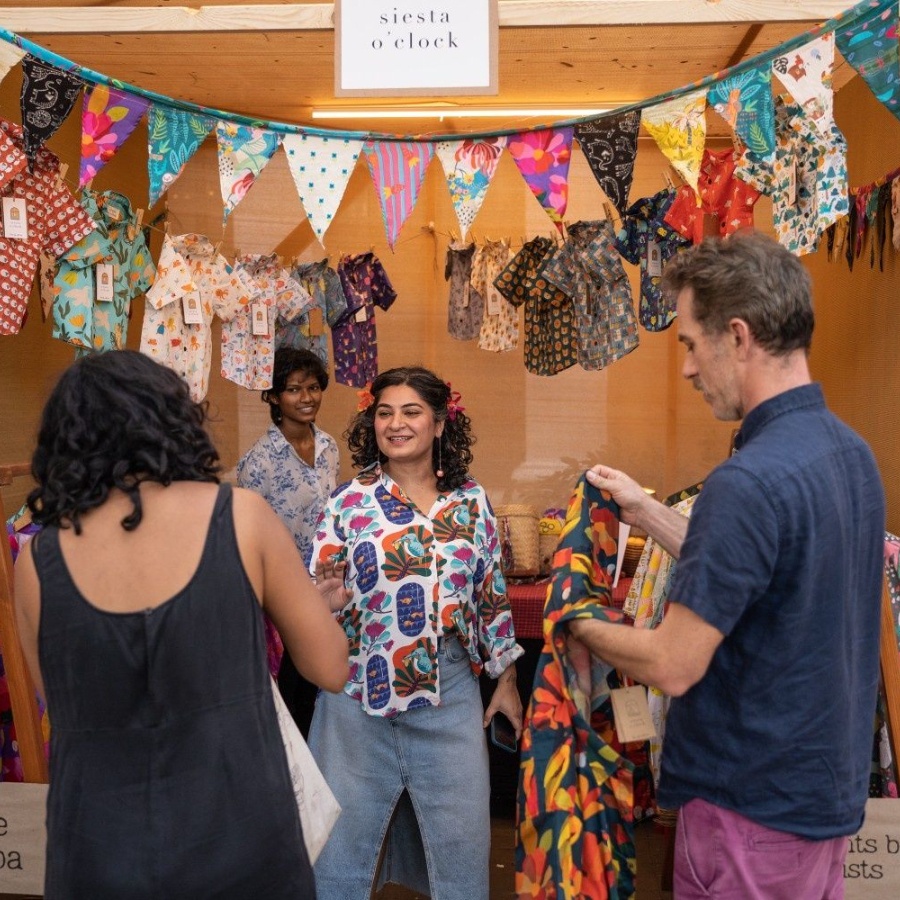Sanjena Sathian has been seeing double. The Indian American author released her second book, Goddess Complex, in March this year, and it features two Sanjanas. Three, actually, if we’re counting the writer herself. Or one, if we're considering that all the Sanjanas evolved from Sanjena, their creator. The book itself plays on the slipperiness of selfhood, identity, and motherhood. Darkly comedic, set between India and USA, the novel takes us into the life of a somewhat aimless 32-year-old named—of course—Sanjana.
Sanjena Sathian, the writer, is anything but that. Raised in the US by Indian immigrant parents, she’s worked as a journalist in Mumbai and San Francisco, written nonfiction for The New Yorker, The New York Times and The Washington Post, and in 2020 even founded the Bombay Writers’ Workshop for aspiring writers.
The Nod catches up with the writer via her favourite books, listed below.
The one book that...
...you’d pick and run if your house was on fire
Hanif Kureishi’s The Buddha of Suburbia. My copy is a first edition, with a beautiful cover depicting one of the debauched quasi-spiritual parties that are so central to the book. I’ve read it two or three times, and it may have saved my writing life.
...made you skip work
American Woman by Susan Choi, a retelling of the Patty Hearst kidnapping. I couldn’t put it down.
...made you go down a Wikipedia hole
Any book I read about cults and high-control religious groups: Educated, Burnt Sugar, Sex Cult Nun, Going Clear. It only takes a few clicks to see the reach of certain cult organisations.
...inspired you when you were writing Goddess Complex
Two very different novels about doubles: Rebecca by Daphne du Maurier, the classic gothic story of not knowing one’s own spouse, and therefore, oneself; and Operation Shylock by Philip Roth, a spy thriller about the novelist Philip Roth being impersonated by someone else calling himself Philip Roth.
...you’re currently reading (could be more than one)
I just finished Batshit Seven by Sheung King—a funny, smart, and rebellious book by a Hong Kong novelist with a real voice.
...you loved as a kid
Enid Blyton’s boarding-school stories and Roald Dahl books.
...is about motherhood that you’ve loved
A Life’s Work by Rachel Cusk—it’s a collection of essays in part about ambivalence toward motherhood.
...comes to your mind when I say “joyful”
The essay Joy by Zadie Smith, in which Smith muses on transcendent joyful experiences, from raves and ecstatic drugs to more daily, arduous pleasures. Also, the poems of Hera Lindsay Bird, which are so alive and so joyful.
...you’d read on a beach
Something New Under the Sun by Alexandra Kleeman. I read it on a beach a few years ago; it’s a Hollywood noir novel/climate dystopian thriller, set in a California that’s on fire.
...helped you become a better writer
Early on, work by [Salman] Rushdie, Roth, and Zadie Smith. More recently, I’ve been learning a lot from Tessa Hadley.
...made you laugh out loud
I howled all the way through Erasure by Percival Everett—it is really biting, daring satire. Leaving the Atocha Station by Ben Lerner and The Idiot by Elif Batuman are, also beat by beat, so winningly hilarious.
...has the best ending
Nickel Boys by Colson Whitehead—it is a perfect novel. I can’t say much more without giving away a truly stunning twist, but I’ll just offer this: no one can do with POV and pacing what Whitehead can, and his mastery of craft is not for craft’s own sake. It’s to tell real, alive, human stories.
...made you want to book a flight asap (and to where?)
I read The Sound of the Mountain by Yasunari Kawabata when I was already in Japan, but it would have made me want to go there.
...had a cover that made you want to buy it
The bright yellow of No One Belongs Here More Than You by Miranda July, and the parrot on the cover of The Mutations by Jorge Comensal.
...you want to see turned into a TV show or movie
I heard they’re making Cassandra at the Wedding by Dorothy Baker into a movie—I’d love to see that. It’s a wonderful book from the 1960s about a gay woman who has a breakdown when her twin sister gets married. I raced to the bookstore to buy it the weekend my brother got married. It kept me good company.
...you hid from your parents
I unsuccessfully hid The Princess Diaries series and then got in trouble for reading them. I think there’s some premarital sex in there. Very scandalous.
...you constantly re-read
I re-read The Bell Jar by Sylvia Plath once every 18 months or so, or I listen to it; Maggie Gyllenhaal reads the audiobook.
...you cannot claim you’ve understood
Pynchon. I have nothing to say about [Thomas] Pynchon except that I don’t like him.
...got you out of a reading slump
Ten years ago, A Tale for the Time Being by Ruth Ozeki, a novel that follows two characters—Naoko, a teenager suffering bullying in Tokyo, and Ruth, who finds Naoko’s diary washed up on the shores of a beach on Vancouver Island. There’s nothing like this book: it’s about Zen Buddhism and time and the sins of history and a family trying to save itself. It’s the book I recommend most universally—I have never had anyone not like it.
More recently, All Things Cease to Appear by Elizabeth Brundage—an incredible feminist murder mystery/ghost story set in upstate New York. It’s Tolstoyan in character ambition but a page-turner of the Donna Tartt variety. Brundage is, I think, criminally under-read.




